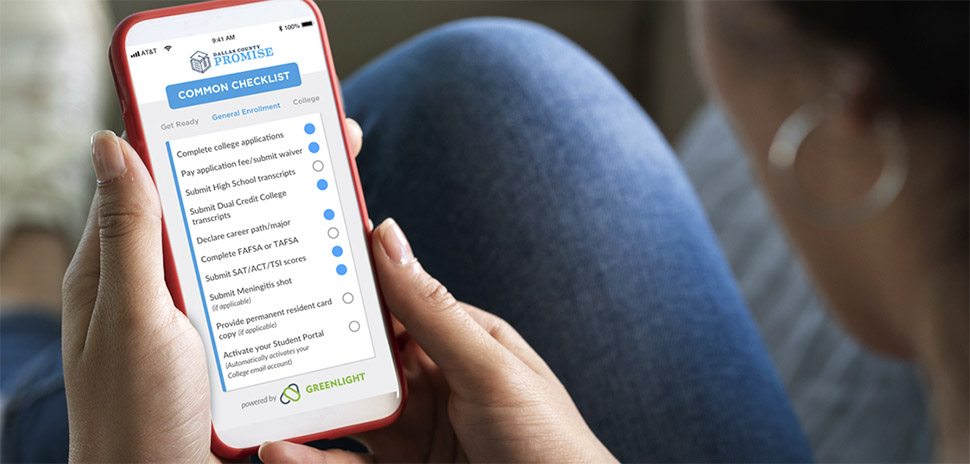Improving Financial Aid and College Enrollment Outcomes for First-Generation Students

For the last three years, the Dallas County Promise has worked with partners to modernize data systems so students, parents, high schools, and colleges can better see information to best support students and produce year-over-year gains in financial aid completion and college enrollment.
With these innovations, Dallas County ranks 3rd in the country behind Tennessee and Louisiana for federal financial aid completion. Dallas County is also outpacing the State of Texas by double digits in both financial aid completion and college enrollment.
The Dallas County Promise currently supports 11 school districts, 57 high schools, and over 21,000 high school seniors (larger than 17 U.S. states) where over 75% of students are economically disadvantaged and 75% are students of color.
Our question over the last three years has been, “what does a modern data system look like whereby students have real-time ownership and control over their data, teachers and other education officials know where students are along their pathways to higher education and jobs?”
In our new state-of-the-art systems, high school seniors sign a pledge to apply to affordable college pathways to many colleges, universities, and training partners. Students grant limited access to their education information to select higher education institutions. This information is securely stored leveraging blockchain technology and managed by the student. As a result, high school guidance counselors maintain visibility of key progress milestones like college applications and financial aid applications, all updated in real-time.
A critical step in the process is when financial aid is matched to a student’s application at a college, university, or training program of choice. This step is often a black hole for parents and students, not knowing the status of their financial aid package and having to call or visit financial aid offices repeatedly to locate and match their files, or to provide documentation.
These typical process challenges can frustrate even the most affluent and well-resourced families with broad support systems. When we step back and think about this experience for first-generation Americans, low-income families, and students of color we represent, it becomes a call to action for technology leaders in education.
In response to yet additional challenges resulting from the COVID-19 pandemic, Dallas County Promise has accelerated the development of new product features, including a comprehensive checklist for all stakeholders in the college application process. Students store their information in a secure virtual locker that they manage with granular access controls to share necessary information with higher education partners. This digital locker is much more secure and efficient than sending documents via email, multiple web portals, fax, and running around campus shuffling papers with personal information.
This new approach was designed and built-in Dallas through the collaboration of K-12, higher education, and workforce leaders who recognized the inequities of college and economic outcomes, the fact that low-income students of color were not making it through the postsecondary system and had little agency in the process, and the inherent risks and inefficiencies in our legacy technology systems.